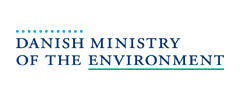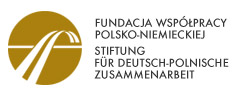Driving Home the Link Between Gender and Climate Change
"Despite the name, WECF's reach goes way beyond Europe, connecting more than 150 organisations and communities all over the world with the aim of influencing gender-sensitive environmental policies at the international level"
20.11.2013 | Inter Press Service
WARSAW, Nov 18 (IPS) - Nov. 19 is Gender Day at the COP19 climate summit in Warsaw, and many of the events taking place in the National Stadium will focus on the topic of gender and its relation with climate change.
The day will open with the launch of the Environmental Gender Index (EGI), a project of the International Union for Conservation of Nature (IUCN).
Lorena Aguilar, IUCN senior gender adviser, explained it to IPS.
"The EGI is the first index of its kind, bringing together measurements of gender and environmental governance; 72 countries have been rated for six different variables, with each one of its indicators," Aguilar said at the COP19 United Nations Climate Change Conference running Nov. 11-22 in the Polish capital.
"It measures the participation of women and men in the convention, but it also looks at many other issues: land tenure issues, forest coverage, anaemia among women, access to credit, access to land, etc."
She added that such an index will be useful for donors to re-assign resources to those areas that are a priority, and also as an accountability mechanism.
While from a Western point of view it might be hard to imagine how climate change effects can have a different impact on men and women, in many parts of the world, such as areas where subsistence farming is carried out by women, the relationship becomes clearer.
"Because of the socially constructed roles, women in Uganda are culturally required to provide food, to cultivate food, to prepare it and serve it to their families," explains Gertrude Kenyangi from Support for Women in Agriculture and Environment (SWAGEN) in Uganda.

"Food, energy and water are interconnected, and if you don't have these three things, which are made even scarcer by climate change, then you won't be able to fulfil your role, and that alone will create problems between you and your husband, it will probably make your children destitute, and it will affect your entire livelihood."
Kenyangi escaped that same fate thanks to an educational programme.
"I myself come from a forest-dependent community, but I broke out of that cycle. I happened to be connected with some religious organisations that sponsored my education." And this is how, after her studies, she founded SWAGEN, a network of grassroots women community-based organisations.
Grassroots movements are paramount to connecting vulnerable people to the governance level, "but you need to make a deliberate effort to reach out to them," Kenyangi told IPS.
"For instance, Women in Europe for a Common Future (WECF) is a platform that brought me into the debate, so I can bring in the grassroots dimension. Without their support I wouldn't have the money to come on my own, I couldn't afford the ticket, the accommodation, not even the registration to this event.
"That's what changes the vicious cycle - if somebody intervenes from the outside, appreciating that we are all living on this planet and have just one planet," she concluded.
Despite the name, WECF's reach goes way beyond Europe, connecting more than 150 organisations and communities all over the world with the aim of influencing gender-sensitive environmental policies at the international level.
What they want to remind policy-makers of is that climate change is caused by life's day-to-day decisions and has an impact on everybody's daily life. But because women and men often have different lifestyles, their activities have a different impact on the environment.
And it works the other way around too: "Climate change has a different impact on women's and men's lives, so if we respond to climate change impacts, we need to have different approaches for women and men," Anke Stock, gender and rights coordinator at WECF, told IPS.
"Another example of this comes from our colleagues in Guatemala, where due to unsustainable economic activities they are having problems of water shortages and women now have to walk four hours a day to bring water to their houses," said Elina Doszhanova, director of the Social-Ecological Fund NGF in Kazakhstan.
Maira Zahur is part of the GenderCC delegation here at the COP, but back home she works on the policy level with the Pakistani government as an expert on disaster risk reduction.
"In simple terms, I advise them on how to use certain policies on the ground, how they can benefit women, how they should be revised, edited or extended, and how they can be taken to the grassroots level, explaining to people what things are there for their benefit."
Recently, U.N. Women carried out a study on flood early warning systems in Pakistan, looking at different aspects, such as the social composition in the different areas, whether men are based in such areas or are working outside, how women make decisions if there are no men in the home, whether they are able to make their own choices in case of a flood warning or are dependent on males in the home or in the streets.
"In Pakistan there are communities in which men work in other cities and females are not allowed to leave their rooms," Zahur told IPS.
"There is documented evidence that during the 2010 floods, when men were not around, the females didn't leave the house, and according to these case studies, some of them drowned. That's why when you make policies such as early warning systems, you need to take into account gender issues," she added.
Women's involvement at all decision-making levels seems to be, if not a solution, at least a first paramount step to addressing these policy gaps.
The attention towards gender-related issues within the climate change debate is growing, as shown by the decision adopted last year in Doha to promote gender balance and participation by women in the UNFCCC negotiations, as well as by the big turnout at the Workshop on Gender and Climate Change held here on Tuesday Nov. 12.
Yet Zahur seems sceptical about possible advances during the conference. Implementing policies requires resources, "but if all the resource are going towards events like this, that are mere talking, then where will the resources come from? We are all so involved in plenaries, contact groups, side events, that the basic purpose for which we are here is kind of lost.
"We need to find solutions that can help people at the grassroots level. That should be the major motivation. But here a lot of blah blah blah is happening, this is so tedious," she said.
Read more IPS reporting here: http://www.ipsnews.net/
Related News
Meet the Winners of the Gender Just Climate Solutions Award at COP24
On the 70th anniversary of the Universal Declaration of Human Rights, we awarded Gender Just Climate Solutions Winners at the climate negotiations in Katowice, Poland
11.12.2018
Getting to the Future We Want
4-7 November, Brussels: European Environmental Bureauís (EEB) Annual Conference
12.11.2018
What to expect from the climate talks that resumed in Bangkok this week?
COP24: second intersession of the climate change negotiations 2018, Bangkok, Thailand
07.09.2018
Application open for Gender Just Climate Solutions Award 2018!
WECF and partners invite you to participate in the 4th annual Gender Just Climate Solutions Awards
01.08.2018
Women and Gender Constituency Joint Statement On SB48
Real commitment to rights-based, gender-just solutions to climate change is imperative for the effective implementation of the Paris Agreement.
18.06.2018






































